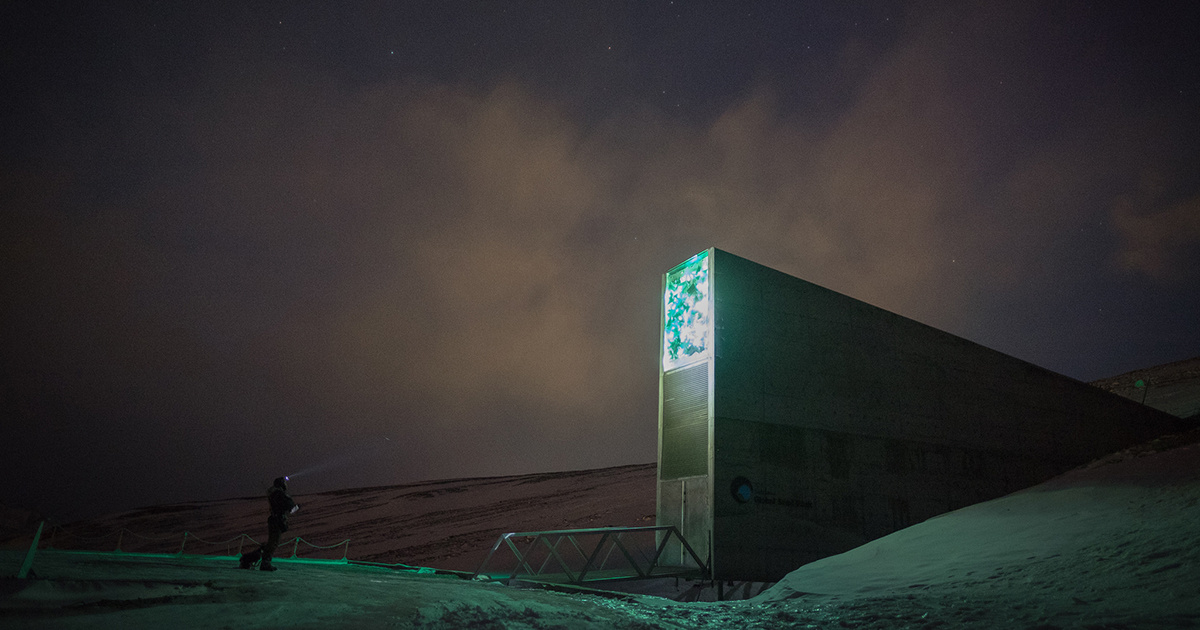
‘We Can’t Trust the Permafrost Anymore’: Doomsday Vault at Risk in Norway

Dusk at the Svalbard Global Seed Vault. Frode Bjorshol / Flickr / CC BY 2.0
By Eoin Higgins
Just over a decade after it first opened, the world’s “doomsday vault” of seeds is imperiled by climate change as the polar region where it’s located warms faster than any other area on the planet.
The Svalbard Global Seed Vault, which opened in late February 2008, was built by the organization Crop Trust and the Norwegian government on the island of Svalbard next to the northernmost town in the world with more than 1,000 residents, Longyearbyen.
“Svalbard is the ultimate failsafe for biodiversity of crops,” said Crop Trust executive director Marie Haga.
Northern temperatures and environment on the island were a major reason for the construction. According to in-depth reporting from CNN, the project planners hoped that the permafrost around the construction of the underground vault would, in time, refreeze. But the planet has other plans.
Longyearbyen and, by extension, the vault, is warming more rapidly than the rest of the planet. That’s because the polar regions of Earth—the coldest areas on the planet—are less able to reflect sunlight away from the polar seas due to disappearing ice and snow cover.
'Doomsday vault' town warming faster than any other on Earth: 3.7 degrees Centigrade warming already in this Arctic town. Permafrost melting. Buildings sinking. https://t.co/oFLGjNyhad
— John Raymond Hanger (@johnrhanger) March 27, 2019
Not good. https://t.co/8qSmzYGD1P
— Global Citizen UK (@GlblCtznUK) March 27, 2019
Reposted with permission from our media associate Common Dreams.
- 'Doomsday' Seed Vault Flooded After Arctic Permafrost Melts ...
- World's Largest Seed Bank Hits One Million Unique Food Crops ...
- Scientists Want to Build a Solar-Powered Ark on the Moon to Protect Earth Species

 233k
233k  41k
41k  Subscribe
Subscribe 